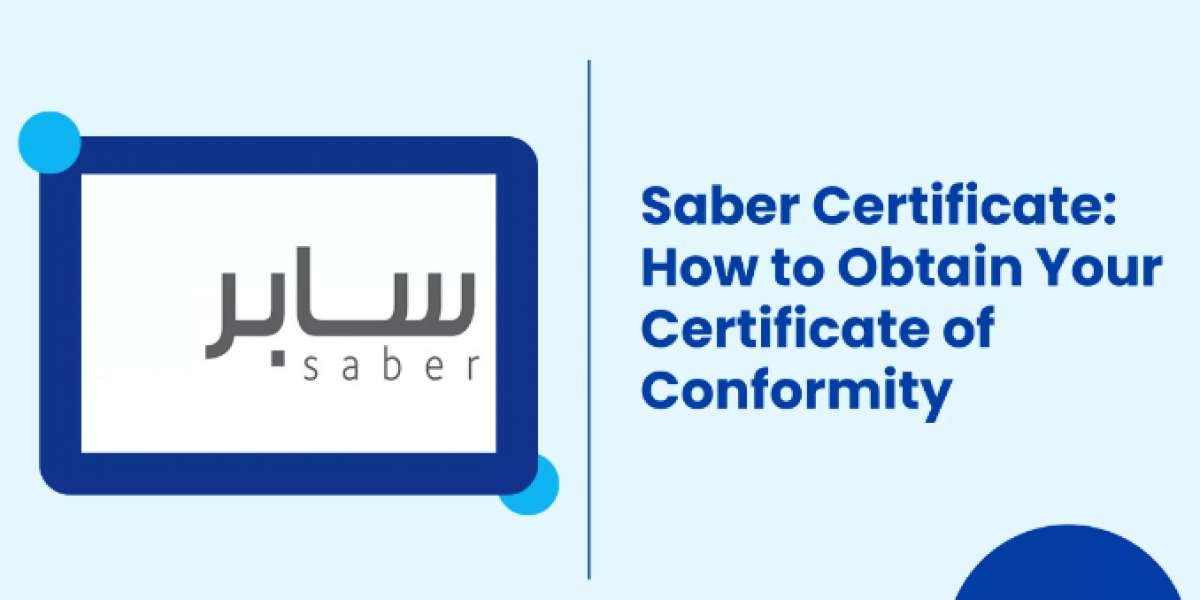Navigating the regulatory landscape in Saudi Arabia can be challenging for businesses, particularly when it comes to understanding the intricacies of SASO and SABER certification. These certifications are crucial for ensuring that products meet the high standards set by the Saudi Arabian government, allowing for smooth entry into the Saudi market. In this article, we provide an in-depth look into the SASO (Saudi Standards, Metrology and Quality Organization) and SABER certification processes, outlining their importance, procedures, and benefits for businesses aiming to expand in Saudi Arabia.
Understanding SASO Certification
What is SASO?
The Saudi Standards, Metrology and Quality Organization (SASO) is the regulatory authority in Saudi Arabia responsible for setting and enforcing standards for products and services. Established to protect public health and safety, SASO plays a critical role in the Kingdom's Quality Infrastructure .
Key Objectives of SASO
- Ensuring Safety and Quality : SASO's primary objective is to ensure that all products entering the Saudi market comply with national safety and quality standards.
- Facilitating Trade : By harmonizing standards, SASO facilitates smoother trade relations and market access for international businesses.
- Consumer Protection : SASO aims to protect consumers by ensuring that products meet specified safety and quality benchmarks.
SASO Certification Process
The SASO certification process involves several key steps:
- Product Testing : Products must undergo rigorous testing to ensure they meet Saudi standards.
- Documentation Review : Manufacturers need to provide comprehensive documentation, including test reports, technical specifications, and compliance declarations.
- Factory Inspection : An inspection of the manufacturing facility may be required to verify production processes and quality control measures.
- Issuance of Certificate : Upon successful completion of the evaluation, SASO issues a Certificate of Conformity (CoC), allowing the product to be imported into Saudi Arabia.
Introduction to SABER System
What is SABER?
SABER is an online platform introduced by SASO to streamline the process of obtaining product conformity certificates for goods imported into Saudi Arabia. This platform is part of the Kingdom's efforts to modernize and simplify regulatory compliance for businesses.
Key Features of the SABER System
- Online Registration : Businesses can register their products and submit the required documentation online, reducing the need for physical paperwork.
- Faster Processing : The SABER system facilitates faster processing of conformity certificates, making it easier for businesses to comply with regulatory requirements.
- Real-Time Updates : The platform provides real-time updates on the status of applications, enhancing transparency and efficiency.
How to Use the SABER Platform
To use the SABER system, businesses must follow these steps:
- Create an Account : Register an account on the SABER platform to start the certification process.
- Product Registration : Log in to the platform and register the products that need certification.
- Select a Certification Body : Choose an accredited certification body to conduct the conformity assessment.
- Submit Documentation : Upload the required documents, such as test reports and technical specifications.
- Review and Approval : The certification body reviews the submitted documents and approves the conformity certificate if all requirements are met.
Comparing SASO and SABER Certification
While both SASO and SABER certifications serve to ensure product compliance with Saudi standards, there are distinct differences between the two:
Navigating the Application Process for SASO and SABER Certification
Securing SASO and SABER certification is a multi-faceted process that requires meticulous preparation and a clear understanding of the required steps. Below, we break down additional details and strategies to navigate the certification processes smoothly.
Detailed Steps for SASO Certification
Understand Product-Specific Standards Each product category has unique standards set by SASO. Start by identifying which standards apply to your product. This can be done by consulting the SASO Technical Regulation for your product category.
Engage Accredited Laboratories Testing your product against SASO standards must be done through SASO-recognized laboratories. Establish relationships with these labs early to ensure your testing aligns with the certification requirements.
Prepare Technical File A comprehensive technical file includes all necessary documents such as:
- Product description and specifications
- Risk assessments and safety data sheets
- Detailed manufacturing process descriptions
- Previous test reports (if any)
Apply for Factory Inspection (if applicable) If SASO requires, schedule a factory inspection. This involves an audit of your production facility to ensure it complies with Saudi quality standards. Prepare by conducting internal audits and pre-inspection checks.
Submit the Application Once all documentation and testing are completed, submit your application to the chosen certification body. This includes the technical file, test reports, and any other required documentation.
Address Non-Conformities If any issues are identified during the certification process, address them promptly. This may involve additional testing or documentation updates. Timely resolution of non-conformities is crucial for certification approval.
Obtain Certificate of Conformity After successful evaluation, SASO will issue the Certificate of Conformity (CoC). This certificate is your key to importing and selling your product in Saudi Arabia.
Streamlining the SABER System Usage
SABER simplifies product certification by digitizing the process. Here's a deeper dive into leveraging the SABER platform efficiently:
Set Up Your SABER Account Registering on the SABER platform is the first step. Ensure all company and product information entered is accurate and complete to avoid delays.
Categorize Your Products Correctly Each product needs to be correctly categorized under its specific Harmonized System (HS) code on the SABER platform. Accurate classification is essential for determining the appropriate standards.
Strategic Approaches to Obtaining and Maintaining SASO and SABER Certification
Achieving and maintaining SASO and SABER certification is not a one-time task but an ongoing commitment to quality and compliance. Here are strategic approaches to streamline these processes and ensure continuous adherence to Saudi Arabian standards.
Proactive Planning and Documentation
Early Preparation and Research
Initiate your certification journey by conducting detailed research on the specific requirements for your product. Understanding the SASO and SABER standards applicable to your goods from the outset helps avoid unexpected issues down the line.
- Product-Specific Standards : Familiarize yourself with the precise standards and technical regulations relevant to your product category.
- Documentation Requirements : Compile a checklist of all necessary documents, including detailed technical specifications, test reports, and safety data sheets.
Comprehensive Documentation Management
Maintaining accurate and up-to-date documentation is crucial for smooth certification processes:
- Digital Documentation : Keep all documents in a well-organized digital format, ensuring easy access and retrieval during the certification process.
- Regular Updates : Regularly review and update your documentation to reflect any changes in product specifications or regulatory requirements.
Utilizing Technology for Compliance Management
Leverage technology to manage and streamline your compliance processes:
- Compliance Management Software : Implement software solutions that can track regulatory requirements, manage documentation, and monitor compliance status.
- Automated Alerts : Set up automated alerts for updates in SASO and SABER standards to ensure timely responses to any regulatory changes.
Effective Collaboration with Certification Bodies
Choosing the Right Certification Partner
Selecting a reputable and experienced certification body is critical:
- Accreditation and Expertise : Choose certification bodies that are accredited and have proven expertise in your industry.
- Communication and Support : Evaluate their communication channels and support services to ensure they can provide timely assistance throughout the certification process.
Building Strong Relationships
Developing a strong working relationship with your chosen certification body can facilitate smoother interactions:
- Open Communication : Maintain open and proactive communication with your certification body, addressing any queries or concerns promptly.
- Feedback Mechanisms : Establish feedback mechanisms to continuously improve the certification process based on experiences and insights from the certification body.
Continuous Improvement and Compliance Monitoring
Regular Audits and Inspections
Implementing a routine schedule for internal audits and inspections can help maintain compliance and prepare for official evaluations:
- Internal Audits : Conduct regular internal audits to ensure ongoing adherence to SASO and SABER standards.
- Mock Inspections : Prepare for factory inspections by conducting mock inspections to identify and address potential issues beforehand.
Training and Capacity Building
Invest in training and capacity building for your team to ensure they are well-versed in SASO and SABER requirements:
- Employee Training Programs : Develop training programs to educate employees about SASO and SABER standards and the importance of compliance.
- Continuous Learning : Encourage continuous learning and professional development in quality management and regulatory compliance.
Staying Informed and Adaptive
Monitoring Regulatory Changes
Keeping abreast of changes in SASO and SABER standards is essential for maintaining compliance:
- Regulatory Updates : Subscribe to regulatory updates and newsletters from SASO and other relevant authorities.
- Industry Networks : Engage with industry networks and professional groups to stay informed about regulatory changes and best practices.
Flexibility and Adaptation
Adapting to regulatory changes and market dynamics is key to sustaining compliance:
- Flexible Processes : Design flexible processes that can quickly adapt to new standards or requirements.
- Risk Management : Implement risk management strategies to anticipate and mitigate potential compliance challenges.
Leveraging SASO and SABER Certification for Market Expansion
Enhancing Product Visibility and Credibility
SASO and SABER certifications can significantly enhance your product's visibility and credibility in the Saudi market:
- Marketing and Branding : Highlight your SASO and SABER certifications in marketing and branding efforts to emphasize your commitment to quality and compliance.
- Consumer Trust : Use certification as a tool to build and reinforce consumer trust and confidence in your products.
Facilitating Entry into New Markets
Certification under SASO and SABER standards can serve as a benchmark for entering other Middle Eastern markets with similar regulatory frameworks:
- Regional Expansion : Utilize your experience with SASO and SABER to explore and penetrate other regional markets with comparable standards.
- Global Compliance : Position your business for global expansion by aligning your products with international quality and safety standards.
Strengthening Competitive Position
Compliance with SASO and SABER can give your business a competitive edge in a crowded market:
- Differentiation Strategy : Differentiate your products through adherence to rigorous standards, positioning them as high-quality and safe options for consumers.
- Market Leadership : Establish your brand as a leader in quality and compliance, setting a benchmark for competitors to follow.
Case Studies and Success Stories
Case Study 1: A Consumer Electronics Manufacturer
A leading consumer electronics manufacturer faced challenges in entering the Saudi market due to the stringent SASO standards. By partnering with a local certification body and implementing a robust documentation management system, they successfully navigated the certification process. The company's proactive approach and dedication to quality compliance not only facilitated market entry but also boosted its brand reputation and sales in the region.
Case Study 2: A Medical Device Company
A medical device company looking to expand into Saudi Arabia leveraged the SABER platform to streamline its certification process. By digitizing their documentation and maintaining close communication with their certification body, they achieved quicker approvals and reduced time-to-market. Their success with SABER certification also opened doors to other Middle Eastern markets, significantly enhancing their regional presence.
Future Outlook: SASO and SABER in the Evolving Market
Innovation and Technological Advancements
As Saudi Arabia embraces innovation and technological advancements, future SASO and SABER certifications may encompass new and emerging product categories, such as:
- Smart Technologies : Standards for smart home devices, IoT products, and other cutting-edge technologies.
- Sustainable Products : Increasing focus on sustainability standards for eco-friendly and green products.
Strengthening International Cooperation
SASO is likely to continue strengthening its cooperation with international standardization bodies, promoting harmonization of standards:
- Global Standards Alignment : Efforts to align with global standards will facilitate easier market entry for foreign businesses and enhance Saudi Arabia's integration into the global trade ecosystem.
- Mutual Recognition Agreements : Potential mutual recognition agreements with other countries could simplify certification processes and reduce compliance costs for international businesses.
Emphasis on Digital Transformation
The SABER platform represents a significant step towards digital transformation in regulatory compliance. Future enhancements might include:
- Artificial Intelligence and Automation : Integrating AI and automation to further streamline the certification process and reduce manual interventions.
- Blockchain for Traceability : Using blockchain technology to enhance transparency and traceability in the certification and supply chain processes.
Conclusion
Achieving SASO and SABER certification is essential for businesses aiming to enter and thrive in the Saudi Arabian market. These certifications ensure that products meet stringent quality and safety standards, facilitating market access and building consumer trust. By adopting strategic approaches, leveraging technology, and staying informed about regulatory changes, businesses can streamline their certification processes and maintain compliance.
The future of SASO and SABER is likely to be shaped by increased digitization, international cooperation, and evolving standards to accommodate new technologies and sustainability initiatives. Businesses that stay proactive and adaptive to these changes will be well-positioned to capitalize on the opportunities in the dynamic Saudi market.


